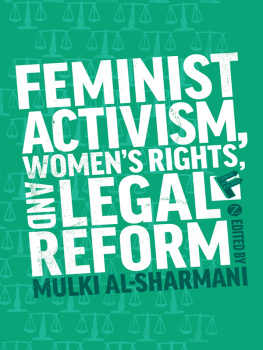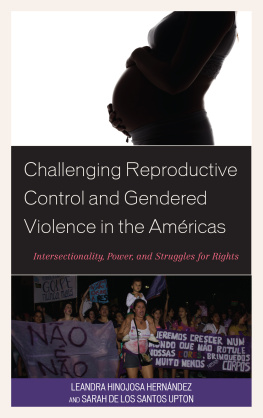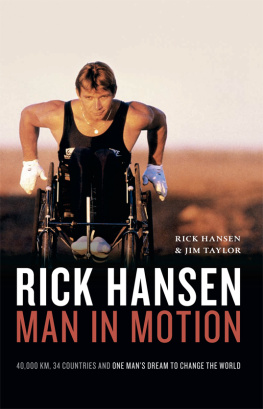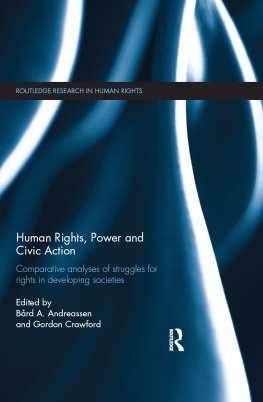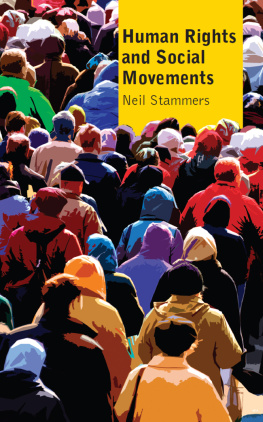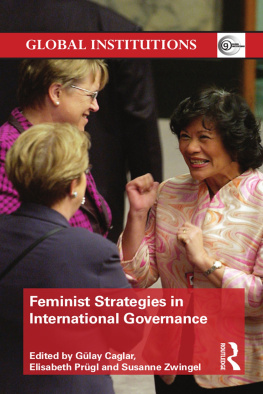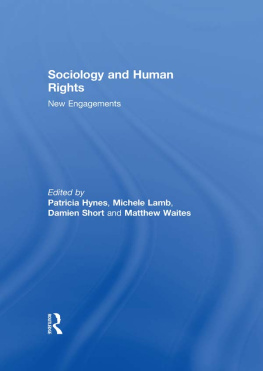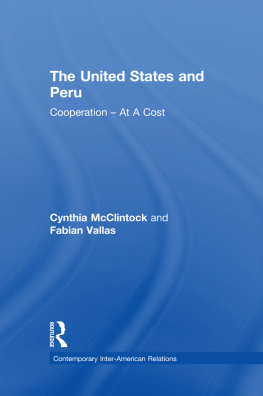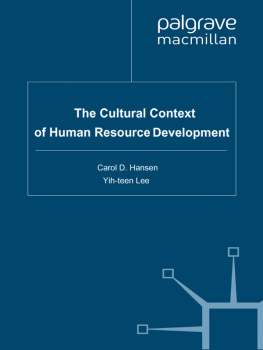2015 by the Board of Trustees of the University of Illinois
All rights reserved
Manufactured in the United States of America
1 2 3 4 5 C P 5 4 3 2 1

This book is printed on acid-free paper.
An earlier version of chapter 5 was published as Finding Each Others Hearts: Intercultural Relations and the Drive to Sexual Violence during the Internal Armed Conflict in Peru, International Feminist Journal of Politics 12, no. 34 (2010): 31940.
Library of Congress Cataloging-in- Publication Data
Bueno-Hansen, Pascha.
Feminist and human rights struggles in Peru : decolonizing transitional justice / Pascha Bueno-Hansen.
pages cm. (Dissident feminisms)
Includes bibliographical references and index.
ISBN 978-0-252-03942-3 (hbk. : alk. paper)
ISBN 978-0-252-08100-2 (pbk. : alk. paper)
ISBN 978-0-252-09753-9 (e-book)
1. Human rights movementsPeru. 2. FeminismPeru. 3. Transitional justicePeru. I. Title.
JC599.p4b845 2015
323.340985dc23 2015003891
A todas las Rosa Cuchillos
y
mi amor, Ana Karina Borja Rodriguez
Acknowledgments
Dissecting the intricacies of oppression while searching for glimpses of alternative yet always imperfect humanizing gestures and actions demands a source of spiritual and emotional sustenance. I found this source in the creative envisioning held within performance art, specifically the work of Grupo Cultural Yuyachkani. I turned to the theater pieces of Rosa Cuchillo, Antgona, and Pirca Wasi / Kay Punku, in times of fatigue and emotional exhaustion, to open spaces oriented by strength, dignity, resilience, healing, and hope. The image of Rosa Cuchillo on the cover evokes this connection.
My writing process has always been intimately intertwined with those of friends and colleagues. Rose Cohen, Elisa Diana Huerta, and Gina Velasco, as well as Marco Mojica and Rashad Shabazz, helped to shape and ultimately birth the earlier draft of this book. Those writing-group meetings sustained me, inspired me, and kept it real with the motto, Get the words on the page. I am also deeply grateful for the guidance I received from Sonia Alvarez, Kent Eaton, Angela Davis, and Rosa Linda Fregoso, who all continue to be great inspirations.
I am ever grateful for the two collaborative projects that started during my time at the University of California, Santa Cruz, the Transloca research cluster, and the Santa Cruz Feminist of Color Collaborative. The Transloca research cluster brought together feminist scholars from throughout the Amricas to partake in a sustained, hemispheric dialogue. The principle concern with the feminist politics of translation across the Amricas directly informs my approach in this work. The Santa Cruz Feminist of Color Collective rooted me further in the political stakes involved in knowledge production, taught me how to move through conflict productively, and demonstrated the healing power of collective envisioning and intergenerational connection: gracias hermanas.
While I wrote this book, the groups who got me through the later drafts shifted to the virtual and reconfigured to include Rashad Shabazz, Kalindi Vora, and Sora Han, who offered excellent advice. Susy Zepeda and Sandra Alvarez have continually given me great insights and comments. Even though we were spread thousands of miles apart, these virtual group meetings nurtured in us the critical interdisciplinary spirit of our UC Santa Cruz graduate training in the early years of this century.
Rashad Shabazz has been my most consistent intellectual hermano during the past eight years. We moved through the drafts and final manuscript in lock step. When things would start to feel crazy, I always knew an open-hearted conversation with him would bring perspective to the situation. Thank you, Rashad, for being such an absolutely incredible human being and friend.
At the University of Delaware, the Hemispheric Dialogues research cluster provided important guidance and feedback on the book as well an intellectual home. A special thanks to mis queridas colegas Alvina Quintana, Monica Dominguez Torres, Gladys Ilarregui, Rosalie Rolon Dow, and Carla Guerron Montero. Alvina Quintana, thank you for taking me under your wing as an intellectual sobrina and demystifying the tenure-track process. I also want to thank my colleagues in the Women and Gender Studies Department, Sue Cherrin, Kathy Turkel, Jennifer Nacarelli, Margaret Stetz, Monika Shafi, Marie Laberge, Alvina Quintana, and Deborah Arnold for all of their encouragement and support over the years.
Having received feedback from so many people, I apologize in advance for any omissions. A few people who stand out significantly include Alvina Quintana, Sonia Alvarez, Gina Dent, Anjali Arondekar, Elizabeth Jay Freeman, Cristina Akalde, Antonia Randolph, Maggie Ussery, Lauren Balasco, Johanna Drzewieniecki, the editors at the University of Illinois PressLarin McLaughlin, Piya Chaterjee, and Dawn Duranteand the anonymous reviewer. Genevieve Beenen provided editorial support, and at the University of Delaware Nico Carver worked with me on the images, and John Stevenson prepared the maps.
Various grants and fellowships funded the research I conducted to complete this book, which include: the University of Delaware General University Research Program Grant, the UC Chancellors Writing Fellowship the UC Pacific Rim Program Research Fellowship, the National Womens Studies Association Fellowship, and the UCSC Feminist Studies Fellowship. I extend a heartfelt thanks to the International Studies AssociationNortheast regional governing council and Jennifer Lobasz for honoring me with the Northeast Circle award. The feedback I received from Giovanni Mantilla, Jessica Auchter, Stefanie Fishel, and Dave Benjamin allowed me to re-engage the manuscript at a particularly challenging moment.
In Peru, the book is indebted to the feminist NGO Estudio por la defensa de los derechos de la mujer (DEMUS) and specifically the Manta fieldwork team, including Paula Escribens, Diana Portal, Tesania Velzquez, Silvia Ruiz, and Jessenia Casani. Mara Ysabel Cedanos friendship and enthusiastic support made this book possible. Rossy Salazar, as well as the rest of the DEMUS staff, provided crucial information and insights. Nora Crdenas and Eloy Neira have been important interlocutors throughout. I am deeply grateful to the community of Manta for welcoming me as a researcher with the DEMUS Manta fieldwork team and all the community members who shared their time and perspectives. Ricardo Ramirez, Johanns Rodriguez, and Ruth Borja of the Centro de Informacin del Defensoria del Pueblo provided invaluable assistance with the Peruvian Truth and Reconciliation Commission archives. Julissa Mantilla Falcn, Narda Henrquez Ayn, and Mercedes Crisstomo Meza contributed numerous insights over the years of this research, which benefited this project enormously. Throughout, Marie Manrique always offered a receptive ear and perceptive observations, as well as a treasured friendship. Thank you Marie for helping me through the last part. Maruja Barrig has been a consistent interlocutor over the years, and I am grateful for her generosity at every stage, especially facilitating access to the


 This book is printed on acid-free paper.
This book is printed on acid-free paper.
